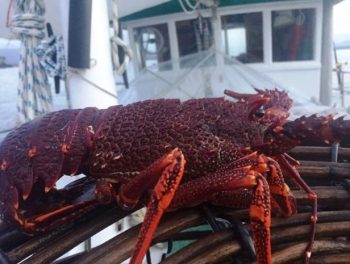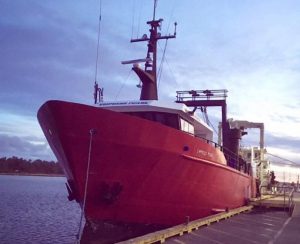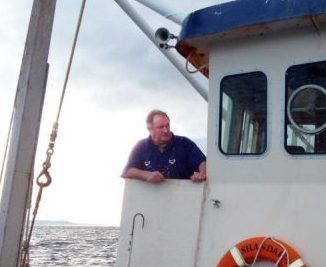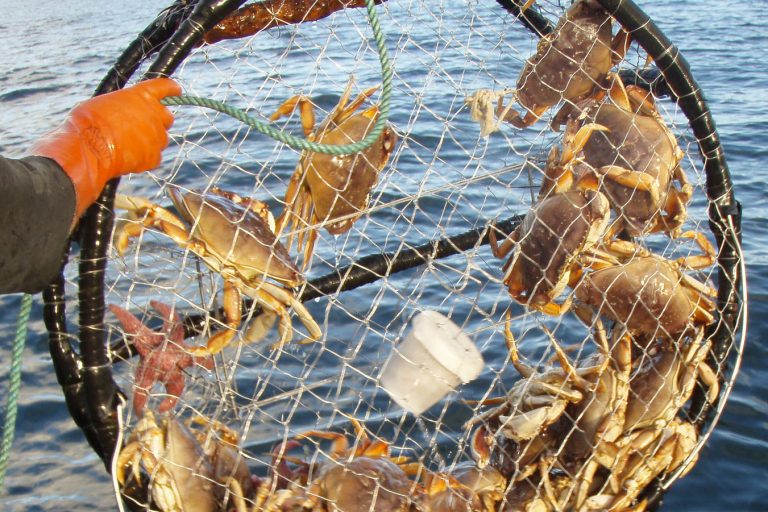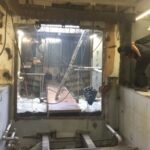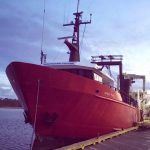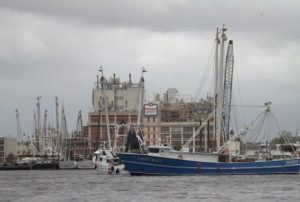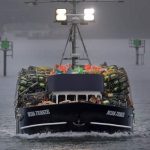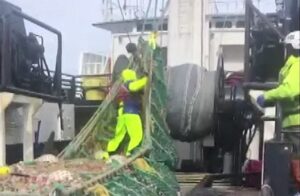Tag Archives: seismic testing
Fishermen wary of seismic plans for Bass Strait waters
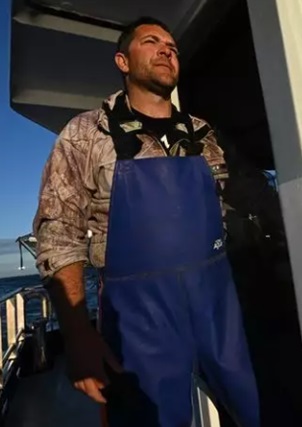 Andrew Smith wants to keep crayfishing long enough to put his children through school. But plans for further seismic testing off his Bass Strait home of King Island have him worried. Energy data company TGS wants to survey for gas across some 4.5 million hectares in the Otway Basin, which are Commonwealth waters between Tasmania and Victoria. Seismic testing has been shown to negatively impact whales as well as other marine life. Tasmanian Seafood Industry Council chief executive Julian Harrington said the testing area was adjacent to rock lobster and giant crab fisheries. He said the waters were a “larvae corridor” for rock lobsters, which have a 15 to 18 month larvae cycle. more, >>click to read<< 07:24
Andrew Smith wants to keep crayfishing long enough to put his children through school. But plans for further seismic testing off his Bass Strait home of King Island have him worried. Energy data company TGS wants to survey for gas across some 4.5 million hectares in the Otway Basin, which are Commonwealth waters between Tasmania and Victoria. Seismic testing has been shown to negatively impact whales as well as other marine life. Tasmanian Seafood Industry Council chief executive Julian Harrington said the testing area was adjacent to rock lobster and giant crab fisheries. He said the waters were a “larvae corridor” for rock lobsters, which have a 15 to 18 month larvae cycle. more, >>click to read<< 07:24
Study of seismic testing used in offshore oil, gas and wind energy industries finds lobsters ‘concussed’
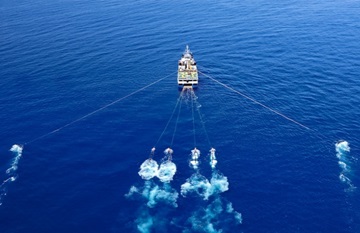 Seismic testing critical to Western Australia’s offshore oil, gas and energy industries is dazing, and potentially killing the state’s valuable western rock lobsters, a new study has found. The practice is essential to offshore oil and gas exploration and the construction of wind turbines, and involves firing powerful air guns, creating soundwaves that penetrate the ocean floor. But research by the WA government’s Department of Primary Industries and Regional Development has found lobsters exposed to the testing are significantly impacted. Offshore crustaceans scientist Simon de Lestang studied the behaviour of lobsters after they were exposed to seismic testing conducted offshore, in shallow water south of Geraldton. >>click to read<< 11:05
Seismic testing critical to Western Australia’s offshore oil, gas and energy industries is dazing, and potentially killing the state’s valuable western rock lobsters, a new study has found. The practice is essential to offshore oil and gas exploration and the construction of wind turbines, and involves firing powerful air guns, creating soundwaves that penetrate the ocean floor. But research by the WA government’s Department of Primary Industries and Regional Development has found lobsters exposed to the testing are significantly impacted. Offshore crustaceans scientist Simon de Lestang studied the behaviour of lobsters after they were exposed to seismic testing conducted offshore, in shallow water south of Geraldton. >>click to read<< 11:05
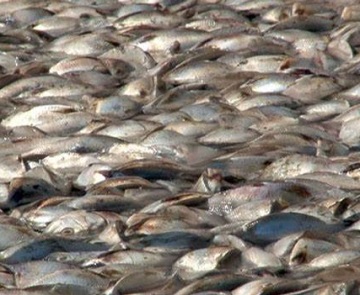
Is the Great Fishkill of 1976 About to be Repeated? By Jim Lovgren
In 1976 the United States suffered its largest man-made environmental disaster ever as 2,500 square miles of ocean died, thanks to a hundred years of sewage dumping by New York City and Northern New Jersey communities. This catastrophe awakened the public to this disgusting practice and environmental organizations sprung up to fight it, eventually winning the fight. Proving that the little guy can prevail against the “powers that be”. >click to read< 17:37
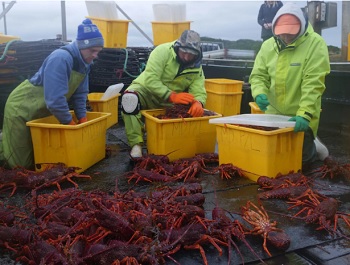
Tasmania: King Island lobster fishers fear seismic testing plans could damage the local industry
Wayne Coombe casts his mind back about 15 years when seismic testing was conducted off the island’s south west. “There was an abundance of lobster there and after that survey, it was almost like they died overnight of old age,” he said. “Lobsters just disappeared, they didn’t crawl, they were not there.” Gas giant ConocoPhillips is hoping to conduct seismic testing in mid-August at the Otway Basin to the west of King Island to assess its natural gas reservoirs. >click to read< 09:08
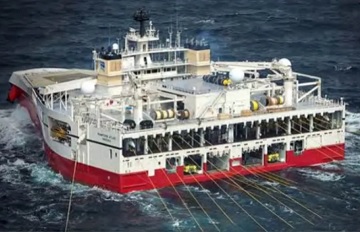
Scientists cast doubt on seismic testing environmental mitigations in N.L.’s offshore
Jack Lawson spent part of this past summer listening for whales around Newfoundland, using recorders moored underwater to track their movements and hear what man-made sounds they may encounter. “All you can hear 24 hours a day, for months on end, every 10 seconds is the boom of a seismic array going off at various distances from our acoustic receivers, and this has made it very hard for us to detect some species, The guns make it hard for Lawson and his team’s recorders, with the technology confusing the pulsing calls of right whales with seismic activity in the distance, DFO scientists thought they’d recorded tens of thousands of instances of right whale calls in the Flemish Pass in 2019, Lawson said. “[But] when we actually went through and manually reviewed these, none of them turned out to be real.” >click to read< 10:41
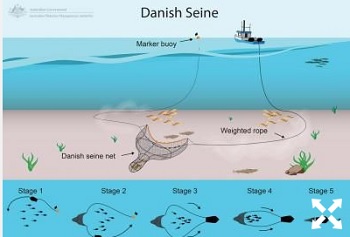
REPORT: Shocking results from seismic research
According to the report, which French seismic company CGG participated in, whiting catches fell by 95% and flathead 75% from January to July compared with the prior six months. While the report is preliminary, and just the first of a four-stage study into seismic acquisition and the effect it has on marine life, it paints a concerning picture for the offshore oil and gas sector as it backs up speculation by fishing companies that seismic acquisition can damage marine habitats.,, The environmental impact of seismic surveys on the marine environment is a hotly contested one, with the oil and gas industry noting it was key to securing exploration, and the fishing industry concerned it is losing catches immediately after surveys are conducted. >click to read< 09:24
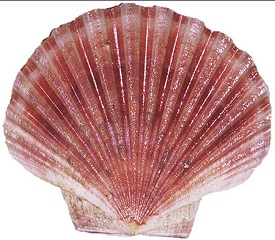
Australia: Senate inquiry on impacts of seismic testing starts in Hobart
An inquiry into the impact of seismic testing in Australian waters has heard there is little scientific research into the effects it has on marine life and commercial fisheries. A Senate committee conducting the inquiry held its first hearing on Hobart on Wednesday. The state’s fishing industry has claimed that 24,000 tonnes of scallops, with a retail value of more than $70 million, were killed in 2010 after seismic testing was conducted in the Bass Strait. John Hammond, from the Scallop Fishermen’s Association of Tasmania, said an area north-west of Flinders Island used to provide an enormous bounty of scallops for fishers, but had been barren since 2010. >click to read< 22:49
21 Oct 2016, Scallop deaths linked to seismic surveys being carried out on seabed, Tasmanian report finds – >click to read<
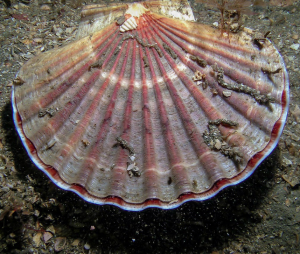
Scientific study finds Seismic testing significantly increases mortality in scallops.
A recently published study in the U.S. Scientific Journal Proceedings of the National Academy of Sciences, found that seismic air gun testing led to a significant increase in mortality among scallops along the Australian coast. No studies have been completed, [or even began] in the U.S. due to lack of funding by the U.S. Commerce Department controlled National Marine Fishery Service. >click to read< 19:57
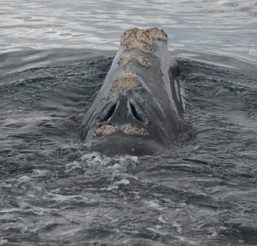
Opinion: Focus on oil industry, not lobstermen, in whale deaths
I went to the Aug. 20 meeting at NOAA regarding the lobster trap lines and the entanglement of the right whales.,, Larry Stepenuck brought up the problem of the mussel farms and their spat lines – another potential cause of whale entanglements. What! Is nobody hearing him? I think lobsterman Mike Goodwin also brought up a good point,,, It’s a gold mine out there. The big oil rigs with their seismic testing, wind farms, fish farms, mining of the ocean floor, etc., want a piece of the action, and those pesky lobstermen are raining on their parade. by Sue Waller, >click to read< 20:43
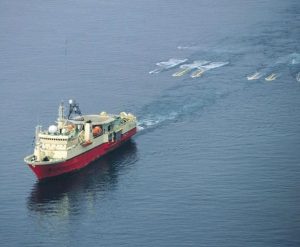
SC anti-drilling group calls on DHEC to pull back seismic permit approvals
Don’t allow three companies to conduct seismic blast testing offshore, an environmental group is telling state regulators. The South Carolina Environmental Law Project urged the S.C. Department of Health and Environmental Control to work with federal regulators to reconsider approvals given four years ago. The request, which is not binding, was sent Tuesday. It comes after DHEC in July rejected plans by WesternGeco, a Texas-based exploration company to conduct seismic testing offshore. It is one of six companies seeking federal permits. >click to read< 17:15

Is seismic testing to blame for disappearing plankton? This scientist says it’s possible
Scientists have noticed a mysterious population crash in some of the Atlantic Ocean’s tiniest and most important species, and a Halifax biologist says oil and gas exploration may be to blame.,,, The tiny organisms are disappearing from Newfoundland and Labrador’s waters, and Lindy Weilgart says blasts from seismic air guns have been shown to wipe them out.,,, On the other side of the world, Australian scientists first found that testing with seismic air guns destroys plankton a few years ago, >click to read< 21:18

FISH-NL renews call for halt to seismic testing – ‘If plankton isn’t protected you might as well say goodbye to the fish’
The Federation of Independent Sea Harvesters of Newfoundland and Labrador (FISH-NL) is once again calling on the Canada/Newfoundland and Labrador Offshore Petroleum Board (C-NLOPB) to suspend offshore seismic work in light of new research that reveals plankton productivity has plunged. The research by the federal Department of Fisheries and Oceans (DFO) doesn’t link the dramatic and persistent drop in plankton to seismic activity, but other research has found the intense acoustic signals may damage the critical elements of the food chain. “It’s highly coincidental that as seismic activity ramped up plankton productivity plunged,” says Ryan Cleary, President of FISH-NL. “Seismic activity may be necessary for offshore oil and gas development, but it must not come at the expense of our wild fisheries and marine ecosystem — cutting off our nose to spite our face.” >click to read<10:43
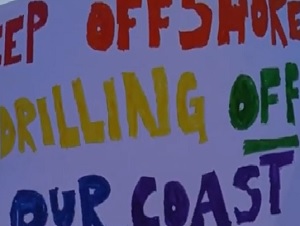
South Carolina: Local organization speaks out against seismic testing
Friday, seismic testing was given the go-ahead by the National Marine Fisheries Services, which is a part of the National Oceanic and Atmospheric Administration. Last year, the U.S. Department of Interior denied the seismic permits. They said the damage caused to marine animals and the fishing industry was not worth it.It is now a go, and Lowcountry organizations are upset because seismic testing is the first step to potentially allowing offshore drilling. “We are extremely against seismic air gun blasts,” Peg Howell, spokesperson for Stop Offshore Drilling in the Atlantic, said. >click to read<20:50
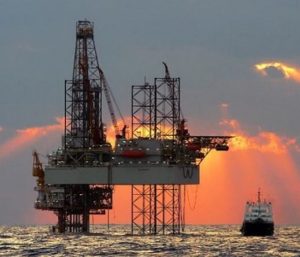
Australia: Seafood industry calls for Senate inquiry into seismic testing
Members of the Australian seafood industry are persisting in their calls for an inquiry into seismic testing, despite the Senate having twice rejected the idea. Seismic surveys, which are used to search for undersea oil and gas deposits, involve firing intense soundwaves into the ocean floor, which fishers worry could disrupt the behaviour of marine life. Southern Bluefin Tuna Industry Association President Brian Jeffriess said not enough is known about the impacts of the practice. >click to read<11:51
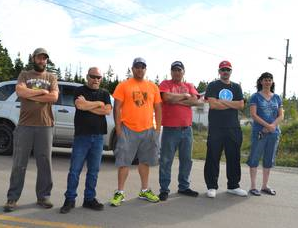
Fishermen block entrance to Donkin Mine – “We want the mine to shut down”
Angry fishermen say a blockage of the entrance to the Donkin Mine on Tuesday is just the beginning if something isn’t done about the mine’s plans to ruin their industry. “We need immediate action on issues or we’re going to come back and do this again,” said Port Morien fisherman Don Messenger. Messenger said many of them don’t want coal transportation by barging, rail or by road, they simply want the mine to close. They are hearing seismic testing is scheduled within the next couple weeks but other issues include barging, contamination of their lobsters and the impact on the fishermen’s livelihood. “When seismic comes and the contamination of the coal, it’s going to destroy this fishery,” he said. >click to read<18:35
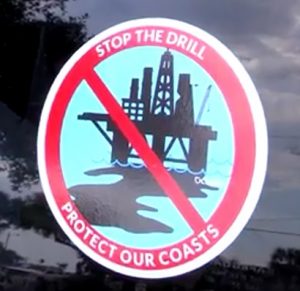
East Coast offshore drilling just got dumber
Seismic testing for potential offshore oil or gas — long opposed by Beaufort Mayor Billy Keyserling and City Council — just got dumber. Frank Knapp Jr., president and CEO of the SC Small Business Chamber of Commerce, has been bird-dogging opposition to offshore drilling and seismic testing. “Government documents and firsthand accounts of munitions and radioactive waste being dumped off the Atlantic Coast from Massachusetts to Florida came to our attention only recently,” Knapp said. On Friday, Knapp sent out a news release with this warning: >click to read<16:26
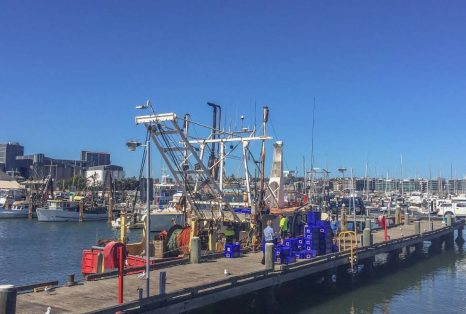
Newcastle Co-op braces for impact of seismic testing on commercial fishing industry
A lot of dead fish – that’s the fallout a Hunter commercial fishing industry leader expects after seismic testing is finished off the coast of Newcastle. Western Australia-based company Advent Energy received approval from the Commonwealth regulator in January to use an air gun to shoot acoustic pulses into the ocean floor in search of gas deposits about 30km off the east coast. The testing, which will take place over three to four days this week, was due to start last Monday but a cyclone in Queensland delayed the survey vessel’s journey to the Hunter. >click to read<21:51
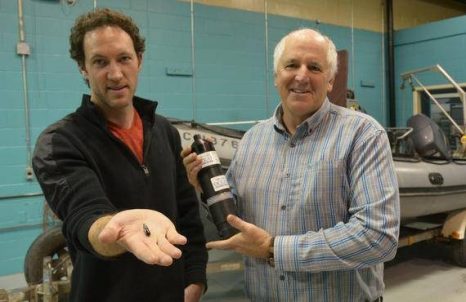
Ecologist disputes Donkin Mine ocean test fears
The longer Kameron Coal gives in to public pressure and delays its controversial plan to conduct sub-ocean floor surveying near the Donkin Mine, the longer Cape Bretoners will have to wait to find work there, says a Nova Scotia marine ecologist. “The reason they laid off 49 people this month is that they’re not going to be mining any more coal until they sort this out,” said Bruce Hatcher, chairman of Marine Ecosystem Research at Cape Breton University.,, Hatcher claims both Fisheries and Oceans and the company have been misleading fishermen into believing the proposed two-week project will include conventional seismic testing, which comparatively poses much more of a threat to ocean ecosystems. click here to read the story 09:20
‘Stop this right now’: Cape Breton fisherman worried about seismic testing
 Fishermen in Cape Breton are worried about the impact planned seismic testing at the Donkin mine will have on their lobster grounds and livelihoods. Kameron Coal has been given the green light to blast sound waves out of an air gun in an attempt to survey an area it leases offshore of Glace Bay. The company operates the Donkin mine, which extends underneath where Herb Nash fishes. “We’re asking them to stop this right now, and put an end to it and not let it happen,”,,, click here to read the story 16:32
Fishermen in Cape Breton are worried about the impact planned seismic testing at the Donkin mine will have on their lobster grounds and livelihoods. Kameron Coal has been given the green light to blast sound waves out of an air gun in an attempt to survey an area it leases offshore of Glace Bay. The company operates the Donkin mine, which extends underneath where Herb Nash fishes. “We’re asking them to stop this right now, and put an end to it and not let it happen,”,,, click here to read the story 16:32
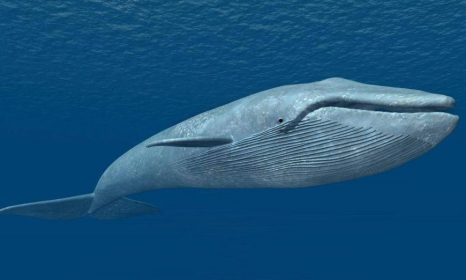
Scientist exposes impacts of seismic airguns on NZ Blue Whales
A renowned marine ecologist at Oregon State University has laid bare the harmful impacts that seismic blasting for oil has on New Zealand’s marine life, including the blue whale. Dr Leigh Torres from the Marine Mammal Institute at Oregon State University, has penned a blog and released recordings that expose the intensity of the seismic airguns used by the petroleum industry to search for oil. The report was written in collaboration with Dr Holger Klinck from Cornell University. click here to read the story 10:53
Time is running out to protect the Atlantic coast
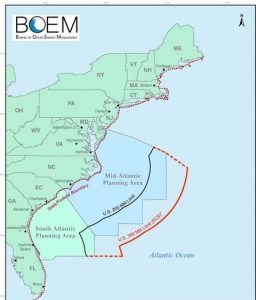 President Trump has proclaimed that his administration is seeking “American energy dominance.” The reality is we’re already there. The United States produces more natural gas and oil than any other nation. We do import about 25 percent of our oil needs mostly from Canada and Mexico. However, that’s only because we export about 1 million gallons a week of the type of domestically produced oil we don’t want. The U.S. is beholding to no other country for our energy security. If these facts come as a surprise to you, then you are ripe for being deceived by those who want to use airgun blasting to explore for oil and gas off the Atlantic Coast. The petroleum industry and its allies are trying to convince you that current technology and procedures for testing for offshore oil and gas deposits are safe. click here to read the story 09:13
President Trump has proclaimed that his administration is seeking “American energy dominance.” The reality is we’re already there. The United States produces more natural gas and oil than any other nation. We do import about 25 percent of our oil needs mostly from Canada and Mexico. However, that’s only because we export about 1 million gallons a week of the type of domestically produced oil we don’t want. The U.S. is beholding to no other country for our energy security. If these facts come as a surprise to you, then you are ripe for being deceived by those who want to use airgun blasting to explore for oil and gas off the Atlantic Coast. The petroleum industry and its allies are trying to convince you that current technology and procedures for testing for offshore oil and gas deposits are safe. click here to read the story 09:13
Our View: Cooper rightly pans offshore drilling
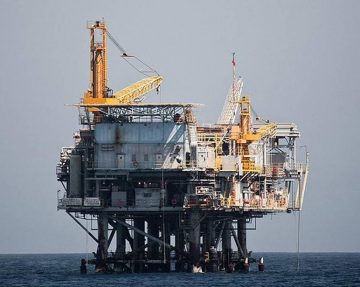 Gov. Roy Cooper was right on the mark last week in declaring his staunch opposition to opening up North Carolina’s coast to offshore drilling. Cooper made the announcement Thursday on the beach at Fort Macon State Park in Cataret County, one day before the deadline for elected officials to submit comment on the Trump administration’s request for companies to perform seismic testing under the Atlantic Ocean. Gov. Roy Cooper was right on the mark last week in declaring his staunch opposition to opening up North Carolina’s coast to offshore drilling. Cooper joins Republican South Carolina Gov. Henry McMaster and Republican Maryland Gov. Larry Hogan in opposing any plan to drill for oil and gas off the Atlantic coastline. click here to read the op-ed 08:08
Gov. Roy Cooper was right on the mark last week in declaring his staunch opposition to opening up North Carolina’s coast to offshore drilling. Cooper made the announcement Thursday on the beach at Fort Macon State Park in Cataret County, one day before the deadline for elected officials to submit comment on the Trump administration’s request for companies to perform seismic testing under the Atlantic Ocean. Gov. Roy Cooper was right on the mark last week in declaring his staunch opposition to opening up North Carolina’s coast to offshore drilling. Cooper joins Republican South Carolina Gov. Henry McMaster and Republican Maryland Gov. Larry Hogan in opposing any plan to drill for oil and gas off the Atlantic coastline. click here to read the op-ed 08:08
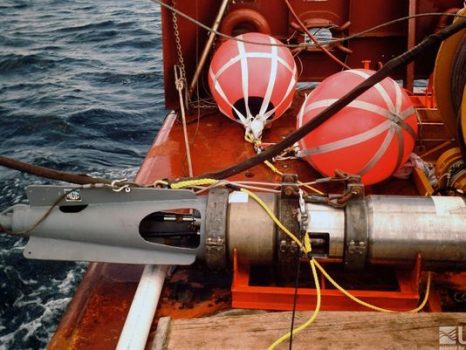
OPINION: Ban seismic testing, offshore drilling of NJ coast
Summer is in full swing at the Jersey Shore. Over the next couple of months and into the fall, millions of visitors will head “down the shore” for the beaches, fishing, boating and ecotourism activities like whale and dolphin watching. It’s hard to imagine New Jersey without its thriving shore tourism economy — dependent on a healthy ocean and a clean coastline stretching from Sandy Hook to Cape May. The same goes for its commercial fishing industry, which supplies fresh seafood to countless restaurants and markets. But tourism and commercial fishing in New Jersey are once again threatened by a bad idea that comes back again and again: ocean drilling for oil and gas along the coast of this state we’re in. click here to read the op-ed 11:17
Time is running out to protect the Atlantic coast from Seismic Testing for oil exploration
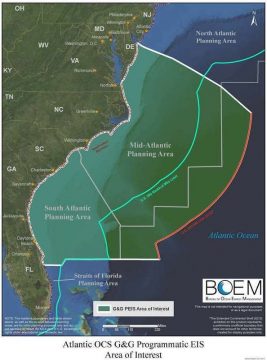 President Trump recently proclaimed that his administration is seeking “American energy dominance.” The reality is we’re already there. The United States produces more natural gas and oil than any other nation. We do import about 25% of our oil needs mostly from Canada and Mexico. However, that’s only because we export about one million gallons a week of the type of domestically produced oil we don’t want. The U.S. is beholding to no other country for our energy security.,,, The government estimates that up to 138,000 whales and dolphins could be injured or harassed if seismic airgun blasting was allowed in the Atlantic.,,, The government doesn’t even try to estimate the number of fish and invertebrates killed or harassed due to seismic airgun blasting. Ironically, in spite of its name the federal agency that approves applications for seismic testing, the National Marine Fisheries Service, requires absolutely no procedures to reduce the destructive impact of airguns on fish and invertebrates like squid. click here to read the op-ed 08:15
President Trump recently proclaimed that his administration is seeking “American energy dominance.” The reality is we’re already there. The United States produces more natural gas and oil than any other nation. We do import about 25% of our oil needs mostly from Canada and Mexico. However, that’s only because we export about one million gallons a week of the type of domestically produced oil we don’t want. The U.S. is beholding to no other country for our energy security.,,, The government estimates that up to 138,000 whales and dolphins could be injured or harassed if seismic airgun blasting was allowed in the Atlantic.,,, The government doesn’t even try to estimate the number of fish and invertebrates killed or harassed due to seismic airgun blasting. Ironically, in spite of its name the federal agency that approves applications for seismic testing, the National Marine Fisheries Service, requires absolutely no procedures to reduce the destructive impact of airguns on fish and invertebrates like squid. click here to read the op-ed 08:15
Opposition to Atlantic Siesmic Blasting – The Bipartisan Fight for Quieter Oceans
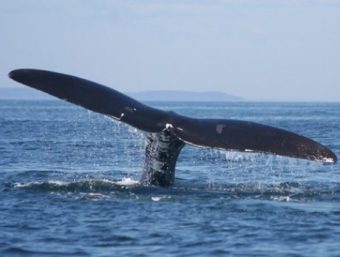 Last night, to celebrate the fourth of July, the air over the U.S. filled with fireworks. The noise they created was extremely loud and, mercifully, brief. But imagine having to listen to even louder explosions once every ten seconds, for days or weeks on end. Starting this fall, that may be the new reality for whales, fish, and other marine life off the eastern seaboard, if the Trump administration’s plans go ahead. Following the president’s executive order to open the Atlantic to offshore drilling, the National Marine Fisheries Service (NMFS) is set to permit five companies to begin seismic airgun blasting—an old but controversial technique for detecting reserves of oil and gas.,,, It is easy to paint environmental issues as fights between moralizing tree-huggers and hard-working business-owners. But the opposition to airgun testing transcends such caricatures. “There is no separation between the interests of environmentalists and the business community,” says Knapp, whose bipartisan organization represents 41,000 businesses and 500,000 commercial fishing families who oppose seismic testing. click here to read the story 17:34
Last night, to celebrate the fourth of July, the air over the U.S. filled with fireworks. The noise they created was extremely loud and, mercifully, brief. But imagine having to listen to even louder explosions once every ten seconds, for days or weeks on end. Starting this fall, that may be the new reality for whales, fish, and other marine life off the eastern seaboard, if the Trump administration’s plans go ahead. Following the president’s executive order to open the Atlantic to offshore drilling, the National Marine Fisheries Service (NMFS) is set to permit five companies to begin seismic airgun blasting—an old but controversial technique for detecting reserves of oil and gas.,,, It is easy to paint environmental issues as fights between moralizing tree-huggers and hard-working business-owners. But the opposition to airgun testing transcends such caricatures. “There is no separation between the interests of environmentalists and the business community,” says Knapp, whose bipartisan organization represents 41,000 businesses and 500,000 commercial fishing families who oppose seismic testing. click here to read the story 17:34
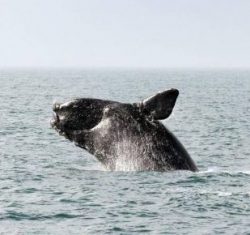
Beaufort Mayor Billy Keyserling renews push against seismic testing as a deadline nears
Beaufort Mayor Billy Keyserling has formally opposed federal permits that would allow companies conducting seismic testing to harass marine life as a byproduct of the process. A public comment period seeking input on the authorizations ends Thursday. Five companies have applied to use seismic air guns to survey the Atlantic Ocean for potential oil and gas deposits. Seismic testing requires separate approval from the National Oceanic and Atmospheric Administration for the companies “to incidentally, but not intentionally, harass marine mammals.” The proposed testing would violate federal law by affecting more than a small number of animals and would have more than the “negligible impact” required for the authorizations,, click here to read the story 17:26







